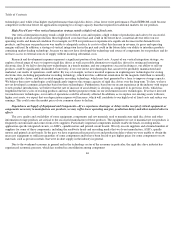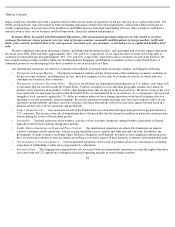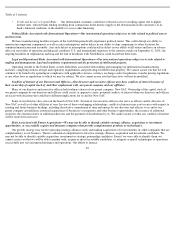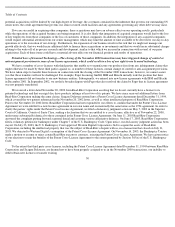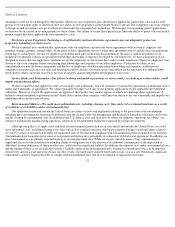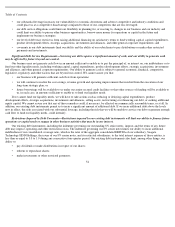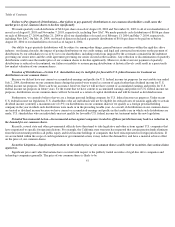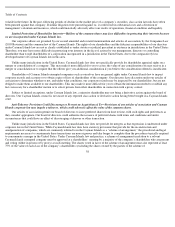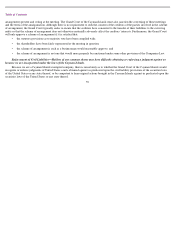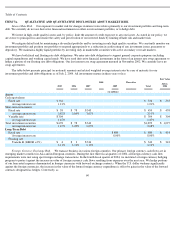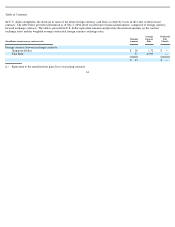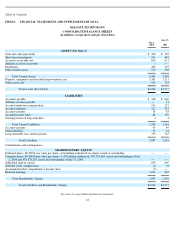Seagate 2003 Annual Report Download - page 57
Download and view the complete annual report
Please find page 57 of the 2003 Seagate annual report below. You can navigate through the pages in the report by either clicking on the pages listed below, or by using the keyword search tool below to find specific information within the annual report.
Table of Contents
interest could arise between us, and New SAC or our sponsor group, and any conflict of interest may be resolved in a manner that does not
favor us. The members of our sponsor group may continue to retain control of us for the foreseeable future, even if New SAC distributes its
shares in us to the New SAC shareholders. The members of our sponsor group may decide not to enter into a transaction in which you would
receive consideration for your common shares that is much higher than the cost to you or the then-current market price of those shares. In
addition, the members of our sponsor group could elect to sell a controlling interest in us and you may receive less than the then-current fair
market value or the price you paid for your shares. Any decision regarding their ownership of us that members of our sponsor group may make
at some future time will be in their absolute discretion.
Future Sales—Additional sales of our common shares by New SAC, our sponsors or our employees or issuances by us in connection
with future acquisitions or otherwise could cause the price of our common shares to decline.
If New SAC or—after any distribution to our sponsors of our shares by New SAC—our sponsors sell a substantial number of our
common shares in the future, the market price of our common shares could decline. The perception among investors that these sales may occur
could produce the same effect. New SAC and our sponsors have rights, subject to specified conditions, to require us to file registration
statements covering common shares or to include common shares in registration statements that we may file. Specifically, any of New SAC,
Silver Lake Partners, Texas Pacific Group or August Capital can unilaterally require that we file registration statements covering common
shares held by New SAC. In addition, either Silver Lake Partners or Texas Pacific Group can unilaterally cause New SAC to distribute its
shares in us to our sponsor group and New SAC’s other shareholders. By exercising their registration or distribution rights and selling a large
number of common shares, New SAC or any of the sponsors could cause the price of our common shares to decline. Furthermore, if we were to
include common shares in a registration statement initiated by us, those additional shares could impair our ability to raise needed capital by
depressing the price at which we could sell our common shares.
One component of our business strategy is to make acquisitions. In the event of any future acquisitions, we could issue additional
common shares, which would have the effect of diluting your percentage ownership of the common shares and could cause the price of our
common shares to decline.
Volatile Public Markets—The price of our common shares may be volatile and could decline significantly.
The stock market in general, and the market for technology stocks in particular, has recently experienced volatility that has often been
unrelated to the operating performance of companies. If these market or industry-based fluctuations continue, the trading price of our common
shares could decline significantly independent of our actual operating performance, and you could lose all or a substantial part of your
investment. The market price of our common shares could fluctuate significantly in response to several factors, including among others:
•
actual or anticipated variations in our results of operations;
•
announcements of innovations, new products or significant price reductions by us or our competitors;
•
our failure to meet the performance estimates of investment research analysts;
•
the timing of announcements by us or our competitors of significant contracts or acquisitions;
•
general stock market conditions;
•
the occurrence of major catastrophic events; and
56
•
changes in financial estimates by investment research analysts.


